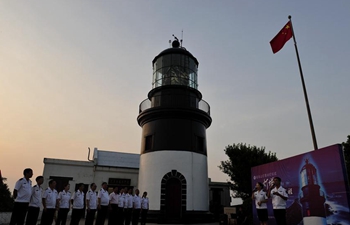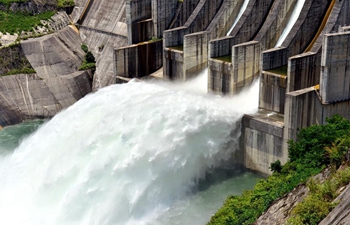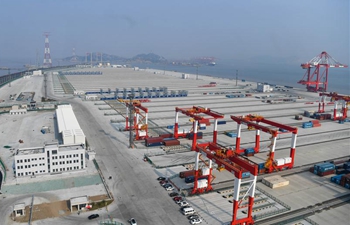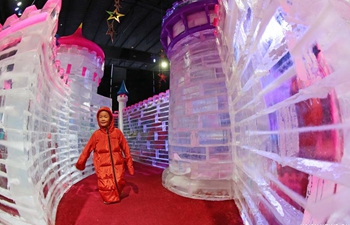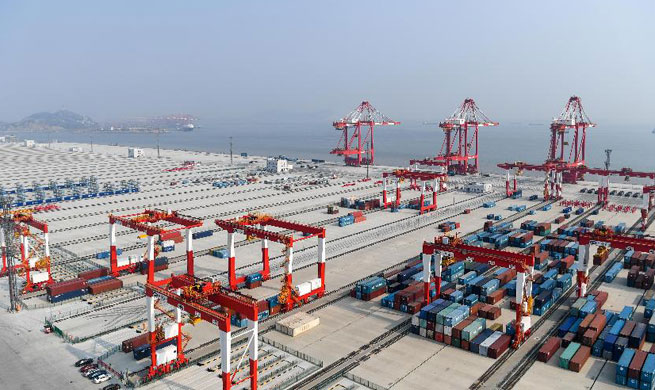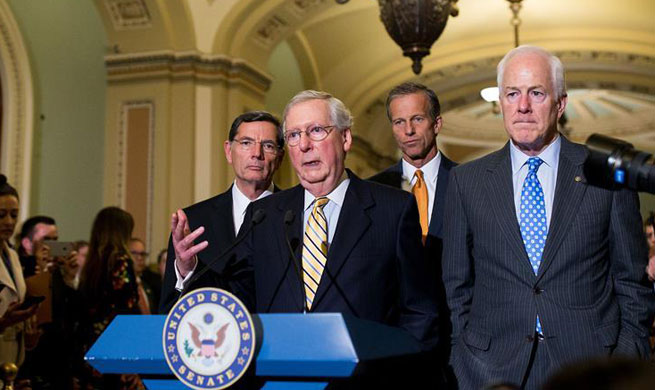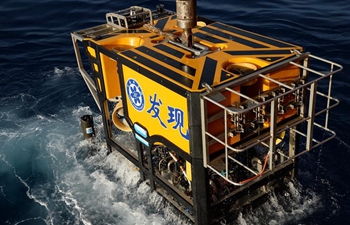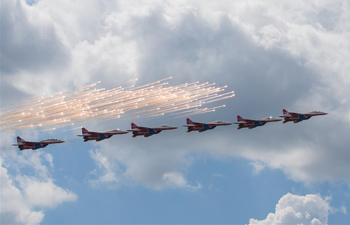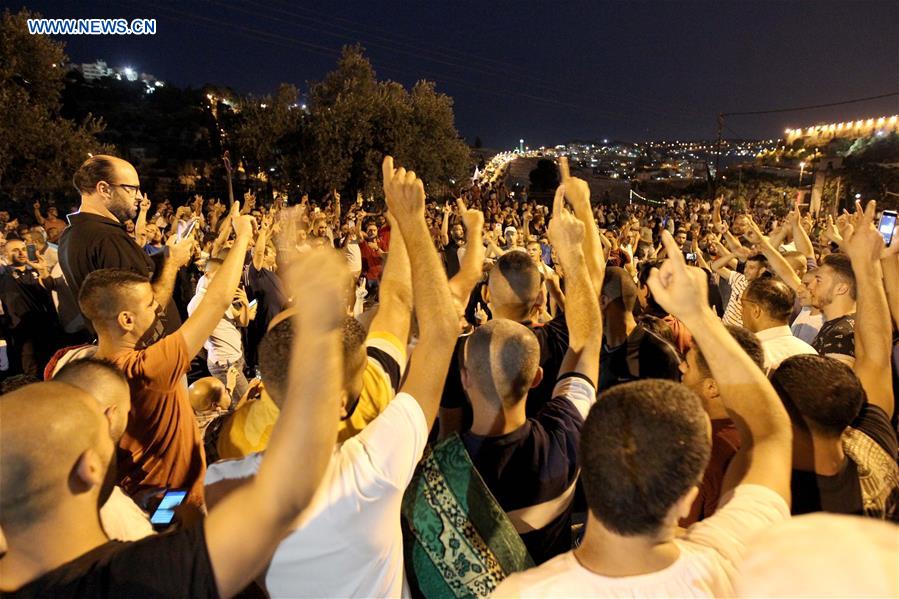
Muslim worshippers protest outside Jerusalem's Old City, on July 25, 2017. Hundreds of Muslims stayed away from Jerusalem's al-Aqsa mosque on Tuesday despite Israel had removed metal detectors from the site, saying the move does not fulfill the requirement of Muslim worshippers. (Xinhua/Muammar Awad)
by Keren Setton
JERUSALEM, July 26 (Xinhua) -- Years of stalemate between Israelis and Palestinians are taking their toll as a new crisis over Jerusalem's holy site has lasted more than two weeks without signs of ending.
Despite Israeli reassurances that the status quo at the Al-Aqsa Mosque compound, which has been delicately maintained for decades, is not changed, they have fallen on deaf ears, a testament to the deep divide between the two skeptical sides.
After almost two weeks of heightened tensions, which began with two Israeli policemen being killed by Arab assailants in the Al-Aqsa Mosque compound, the Israeli government led by Prime Minister Benjamin Netanyahu ordered the dismantling of metal detectors at the entrance to the holy shrine, a security measure that has stirred up a furore among the Palestinian Muslims. But the elusive calm has yet to arrive.
The crisis, with losses of life on both sides, has evolved into a stand-off between Israel and the entire Muslim world, who sees the Jewish state as trying to impose sovereignty on the site.
For Muslims, the Al-Aqsa Mosque is the third most sacred site in their religion. For Jews, the Western Wall which is directly under the mosque, is considered their holiest site.
Although Israel gained control of the compound from Jordanian hands in the 1967 Middle East war, the international community has never recognized its sovereignty in East Jerusalem, which is seen by Palestinians as the capital of their future state.
The fragile status quo since the war is gradually falling apart, causing a series of deadly ramifications.
Israel has kept control of the area throughout the years, but it has never controlled the compound religiously, allowing the Waqf, a Jordanian religious council, to manage the Islamic edifice.
However, the perception that the Israeli government is trying to alter the status quo is fuelling the crisis and has rallied Muslims worldwide despite their internal devides on other pressing issues.
Scenes of clashes around Jerusalem's Old City could be seen almost every evening since the crisis began.
"The (Israeli) statements are heard and perceived on the Palestinian side as baseless, unreliable to say the least. Because of years of disconnect, there is no dialogue; there is no prospect for peace," said Kamal Hassan, a policy researcher at the Mitvim, the Israeli Institute for Regional Foreign Policies.
Footage showing the metal detectors being removed has not defused the crisis. Modified security measures will put in place and for many Muslims this is still cause for protest.
According to polls published in recent days in the Israeli media, Netanyahu's image as a hawk has taken a beating in the Jewish country. In a Channel 2 poll, 67 percent of the surveyed rate the Israeli leader's approach to the crisis as "not good."
The media has widely reported that Netanyahu was told by security officials not to set up metal detectors because of their insidious impacts.
Naftali Bennett, a cabinet minister who leads the nationalist Jewish Home party, wrote on his Facebook page that "Metal detectors are not to blame, but our enemies."
The Israeli prime minister is maneuvering between his right-wing coalition which demands stringent security arrangements on the ground and a growing regional crisis that may adversely affect Israel.
This week, a shooting incident in which an Israeli security guard killed two Jordanians at Israel's embassy on Sunday, has added to the crisis about security checks at the holiest site in Jerusalem.
The sentiments around the 37-acre compound are extremely touchy, as the disagreement goes much deeper than security measures at the site.
Besides, geopolitical changes in the Middle East also serve to feed the crisis.
"The crisis in Jerusalem needs to be understood in the context of changes in the region. The connection to religious sites has become part of the problem in the Middle East. Religious places have become part of popular struggles, a leading characteristic in recent waves of protest," said Kamal Hassan.
The current crisis is the culmination of years of distrust between Israelis and Palestinians, who last sat down for negotiations over three years ago.
Open channels of dialogue between Israel, the Palestinians and the Arab world could have averted the bloody impasse.
"Israel should go back to how things were on the Temple Mount and open a multilateral dialogue, not just with the Palestinians. Israel needs to talk about a peace process with the Palestinians because this is the most pressing issue in the region and the one that inflames this whole situation," said the Israeli expert.




